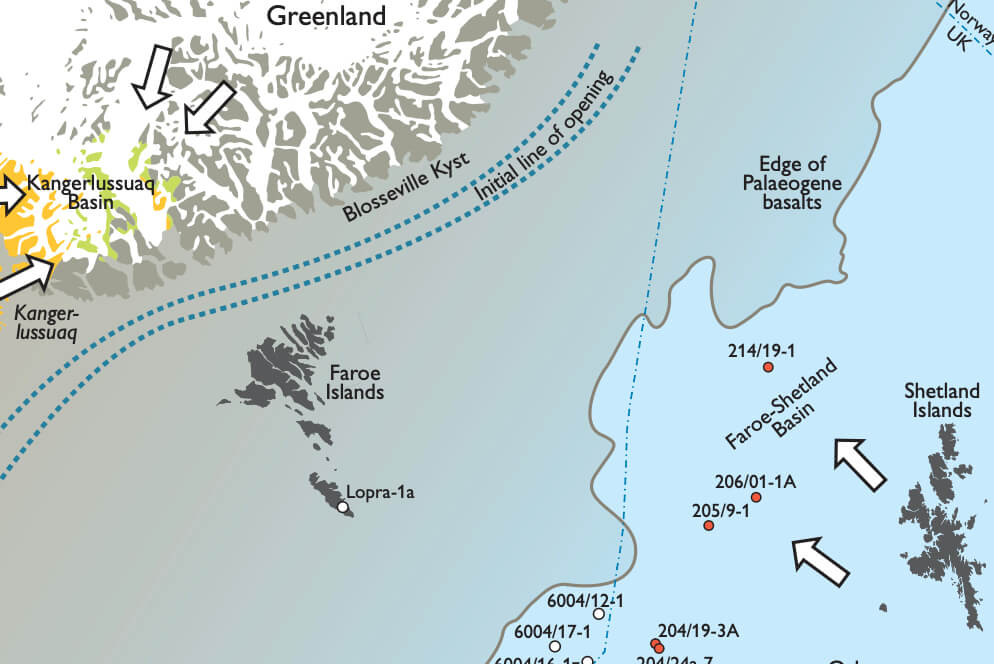
How to Cite
Share
Abstract
The sedimentation and basin evolution of the Kangerlussuaq Basin, southern East Greenland has gained renewed interest with the licensing rounds offshore the Faroe Islands in 2000 and 2005, as it forms an important analogy to the Faroese geological setting. The Faroes frontier area is in part covered by basalts and is a high-risk area with poorly known plays and sedimentary basins. It is therefore essential to obtain as much information as possible on the evolution of sedimentary basins on the rifted volcanic margins closest to the Faroese Islands margin. Plate reconstructions of the North Atlantic region indicate the former close proximity of East Greenland to the Faroe Islands region (Fig. 1), and the Kangerlussuaq Basin thus constitutes the most important field analogue with respect to stratigraphy, major unconformities and basin evolution. The study of the sedimentary succession in the Kangerlussuaq Basin, and the provenance of the sandstones in particular, will provide constraints on exploration models and may help to predict the distribution of potential reservoir sandstones in the Faroese offshore basins, and eventually lead to development of play types that are new to this frontier region.
This paper presents the main conclusions from two research projects: Stratigraphy of the pre-basaltic sedimentary succession of the Kangerlussuaq Basin Volcanic basin of the North Atlantic and An innovative sedimentary provenance analysis, jointly undertaken by the Geological Survey of Denmark and Greenland (GEUS) and CASP (formerly Cambridge Arctic Shelf Programme). Both projects were initiated in October 2002 and concluded in September 2005. They form part of Future Exploration Issues Programme of the Faroese Continental Shelf (SINDRI programme), established by the Faroese Ministry of Petroleum and financed by the partners of the Sindri Group (see Acknowledgements).
How to Cite
Share
Downloads
Editors: Martin Sønderholm & A.K. Higgins
The Review of Survey activities presents a selection of 15 papers reflecting the wide spectrum of activities of the Geological Survey of Denmark and Greenland, from the microscopic to the plate tectonic level.
Activities in Denmark: The Survey's field of activities in Denmark is illustrated by four papers on [...]










